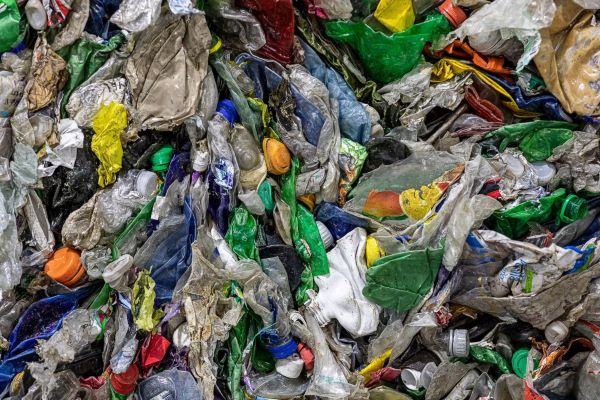Rumpke will provide 100 percent of this waste stream as feedstock to Eastman’s molecular recycling process

Rumpke Waste & Recycling (Rumpke) and molecular recycling pioneer Eastman, announced a groundbreaking partnership to help address the global plastic waste crisis.
Later this year, Rumpke will begin collecting and sorting hard-to-recycle and colored PET packaging waste, materials that are largely unaddressed in recycling ecosystem and will provide 100 percent of this waste stream as feedstock to Eastman’s molecular recycling process.
Eastman will then turn this waste stream into virgin quality polyesters with its molecular recycling technology to be used across a range of packaging applications and to expand the circular economy for polyesters.
“The world is currently grappling with a significant problem, with a large portion of plastic waste either not being collected for recycling, or is considered non-recyclable by traditional methods,” said Jeff Snyder, Director of recycling at Rumpke. “This partnership creates a new market for hard-to-recycle colored and opaque waste that is not currently recycled.”
By harnessing the power of innovation, Rumpke and Eastman are keeping fossil resources in the ground and contributing to a more sustainable future. The partnership sets an example for the industry and demonstrates the importance of collaboration in achieving true circularity.
“Rumpke and Eastman are both committed to innovative approaches to reducing plastic waste through collaboration,” said Brad Lich, Eastman Executive Vice President and Chief Commercial officer. “This partnership reinforces the complementary nature of molecular and mechanical recycling to keep more raw materials in the circular economy enabling brands to meet their recycled content goals.”
This announcement comes as Eastman is nearing the start-up of the world's largest material-to-material molecular recycling facility at their Kingsport, Tennessee site.
Set to begin shipping its first products in the coming weeks, the Kingsport plant will recycle 110,000 metric tons of hard-to-recycle plastic waste annually.
Subscribe to our newsletter & stay updated.